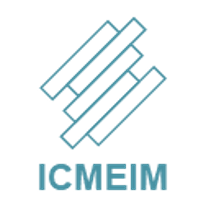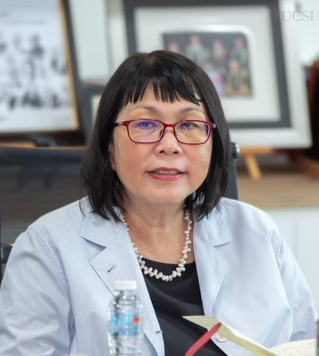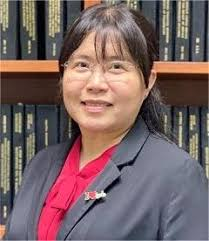
| Assoc. Prof. Bo JiangEast China Normal University, Shanghai, ChinaBrief: Dr. Bo Jiang is currently an associate professor in the School of Computer Science at East China Normal University, Shanghai, China. He is also the Deputy Dean of School of Computer Science and Shanghai Institute of Artificial Intelligence for Education. He received the Ph.D. degree from Zhejiang University. His research interests include learner modeling, learning analytics, computational thinking education, etc. He has published over 50 publications in peer-reviewed journals, conferences, workshops, and book chapters. He is currently served as Executive Committee member of the Asia-Pacific Society on Computers in Education (APSCE), Editorial Board member of IEEE Transactions on Learning Technologies, Research and Practice in Technology Enhanced Learning. He received 2021 APSCE Early Career Research Award. Title: Transforming Personalized Learning Experience with Large Language Model Abstract: Personalized learning refers to instructional methods that tailor instruction to meet the individual learners' needs. Several empirical studies have shown the significant positive effects of personalized learning on students’ cognitive and noncognitive development. However, personalized learning has long been confronted with an embarrassing situation in that it can hardly be implemented at scale. Recently, the rapid development of large language model (LLM) has brought revolutionary changes to personalized learning. This talk would first introduce the connection between LLM and personalized learning and review some most recent study in this area. Then, the speaker will present the development and practical applications of EduChat, an educational chatbot powered by LLM technology, designed and developed by East China Normal University |
Prof. Jinyan HuangJiangsu University, ChinaBrief: Dr. Jinyan Huang (Ph.D.) is Jinshan Distinguished Professor and a Ph.D. faculty member at Jiangsu University in China. He earned his Ph.D. in cognitive studies (with a concentration in measurement, assessment, and research methods) in 2007 from Queen’s University at Kingston in Canada. He obtained his M.A. in TESOL in 2000 from Brigham Young University in Utah, the United States. Before he joined Jiangsu University, he had worked as a full-time tenured full professor and Ph.D. faculty member at Niagara University in the United States. His expertise is on program development and evaluation. In 2009, he was selected as a TESOL/NCATE national program reviewer responsible for reviewing TESOL programs as part of the NCATE national recognition process in the States. In 2011, he was selected as a member on the Board of Program Reviewers of NCATE, responsible for leading the TESOL/NCATE national program review. He is innovative in research paradigms and methods by advocating interdisciplinary research and employing scientific methods. He has very strong interdisciplinary knowledge of assessment and measurement, advanced quantitative research methods, ESL/EFL education, technology, and cognition. His research expertise includes multivariate statistical methods, classical test theory, generalizability theory, item response theory, cognitive diagnosis theory, structural equation modeling, hierarchical linear modeling, and geographic information system and data visualization. He has published 24 books and 104 refereed journals. Title: Global faculty perspectives on students’ use of AI tools in academic writing Abstract:This presentation is based on a study that examined university instructors’ perceptions of the ethical considerations surrounding students’ use of AI tools in academic writing, with a comparative focus on China, America, Canada, and Pakistan. Findings revealed significant cultural and contextual differences in how instructors view the role of AI in academic settings. The findings have significant implications for teachers, students, and institutions in navigating the evolving landscape of AI in higher education. |
|
 | Prof. Chan Nee NeeUCSI University, MalaysiaBrief: Thought-provoking speaker, researcher, and teacher, Professor Chan Nee Nee inspires others to think critically about their actions and reflect on their work. As an invited speaker to conferences and seminars, Nee Nee’s highly interactive style enables her to make meaningful connections with her audience. Nee Nee previously worked as Dean of the Faculty of Social Sciences in UCSI University and Quest International University, and was with the Singapore Polytechnic, as Deputy Director, Language and Communication Department. She has a Doctorate in Education (Durham University, UK), an M.A. in English Studies from the National University of Singapore. Nee Nee’s research interests are in technology-enhanced learning, bullying and cyberbullying, digital cultures, and academic practice. She has published in high impact journals and led several large grant projects in cyberbullying and the use of Artificial Intelligence (AI) in academic practices. Her passion for exploring how technologies intersect with education and society has led her to focus on the big wave currently sweeping the world: the impact of Generative AI in higher education. Title: ChatGPT and GenAI: Empowering and Constraining Impact on Higher Education Abstract: With the public release of ChatGPT in November 2022, the initial response among the academic community has ranged from euphoria to hysteria. Some educators and media journalists proclaim it as a revolutionary invention akin to the creation of the computer. Others perceive it as a threat to their academic practices and jobs. Subsequent release of other Generative AI tools such as Perplexity, Microsoft Pilot, Bing and Chatpdf have reinforced the claim that GenAI is transforming the educational sector. This talk explores how university teachers and students have used ChatGPT and GenAI in higher education and discusses its empowering and constraining impact. The cultural and social implications of such technologies will be also examined. |
Assoc. Prof. Teoh Ai PingUniversiti Sains Malaysia, Malaysia Brief: Teoh Ai Ping is an Associate Professor and currently serves as the DBA and Online DBA and previously Online MBA program manager at the Graduate School of Business, Universiti Sains Malaysia. She holds a Doctor of Business Administration, Master of Science (Information Technology) and Bachelor of Accountancy (Hons.). Ts. Dr. Teoh is a Professional Technologist (Cyber Security Technology) with the Malaysian Board of Technologists and a Certified Risk and Compliance Management Professional with the International Association of Risk and Compliance Management Professionals. She is also an associate member with the Malaysian Institute of Accountants, the Institute of Internal Audit, Malaysia and Association of Certified Fraud Examiners and professional member with Association of Computing Machinery and Institute of Electrical and Electronic Engineers. With a background in both accounting and information systems technology sector, she began her career as an account executive in the EMS industry and then transitioning to consulting in SAP R/3 Enterprise Resource Planning system specializing in the Financial and Controlling; as well as ABAP/4 programming and SAP Scripts. Ts. Dr. Teoh eventually embarked on a career in the academic sector as a Deputy Dean School of Business Administration in a private University before joining GSB USM. Ts. Dr. Teoh has served as external assessor and subject matter expert in several accounting and business programs and being external examiner for Doctoral theses evaluation. Ts Dr. Teoh has successfully completed several consultancy and corporate training projects to clients in both manufacturing and services sectors in Malaysia and abroad. She has a widespread publication record, with articles featured in both local and international journals; and delivered speeches at various international conferences and industry events as Invited Speaker and Keynote Speaker. Her areas of interests include enterprise systems, enterprise risk management, cyber security, and business sustainability. Title: Crafting a Digital Learning Experience: Insights from an Online Postgraduate Business Program Abstract: In the rapidly evolving realm of higher education, postgraduate programs are progressively shifting from traditional in-person instruction to online platforms. This transition, while offering flexibility and broader access to learners, also introduces distinct challenges in ensuring the quality and effectiveness of online education. This case study examines the development of an online postgraduate program with a focus on business administration program, employing a holistic and cohesive approach rooted in the principles of Open Distance Learning (ODL). The study highlights the critical steps and considerations involved in transforming conventional classroom-based teaching into an engaging and effective online experience. Emphasis is placed on designing courses that foster a deeper understanding of subject matter, enhance problem-solving abilities, and encourage higher-order thinking among postgraduate students. By integrating ODL strategies, the program aims to create an interactive, student-centered learning environment that supports critical thinking and real-world application of business management concepts. The findings of this case study underscore the effectiveness of the ODL approach in delivering high-quality postgraduate education in an online setting. The paper also explores how this approach can be used to overcome common challenges in online learning, such as student engagement, maintaining academic rigor, and supporting diverse learning styles. By leveraging digital tools and pedagogical innovations, the program fosters a dynamic learning experience that promotes active participation, collaboration, and continuous skill development. Moreover, the study demonstrates the potential of ODL to not only enhance learning outcomes but also to drive innovation in the design and delivery of online postgraduate programs. The insights gained from this case study offer valuable guidance for educators and institutions seeking to develop or refine their own online programs, particularly in the field of business education. This research contributes to the growing body of knowledge on online learning and provides a model for effectively navigating the challenges of delivering postgraduate education in a digital landscape . |  |

